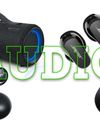Intentar ORO - Gratis
Safeguard Your Private Data At The U.S. Border
PC Magazine
|April 2017
On January 27th, President Donald Trump signed an executive order that immediately changed U.S. immigration and travel policies as they related to seven majority-Muslim countries.

The change sparked protests that touched the technology industry, so much so that over 100 companies eventually co-signed a document objecting to the order. A revised version of the order, intended to be on firmer legal standing than the first, was signed on March 6th and went into effect on March 16th. As of this writing, the second order has been suspended by actions from federal courts.
Amid stories of visa holders, green card carriers, and even United States citizens being detained at the U.S. border were also reports that some people’s phones were searched by Customs and Border Protection (CBP) agents. In some cases, it seems the CBP compelled travellers to unlock their phones as part of a search. (We reached out to the agency for comment but did not receive a response.)
Take a moment to consider your smartphone. It contains all of your text messages, a log of all your calls, and many—if not all—of the photos you’ve taken. Your contacts list and call log also show who you’ve been communicating with—a critical piece of information in counter-terrorism investigations.
Consider also, the apps on your phone that don’t require additional authentication. Once your phone is unlocked, anyone could browse the entirety of your Facebook profile and read all your messages on encrypted messaging services such as WhatsApp or Signal. It’s a major security risk.
Nathan Wessler, a staff attorney with the ACLU speech privacy and technology project, said that CBP agents have two tactics when performing searches of digital devices. [Note that this author is an ACLU donor.] “In some circumstances, they’ll do a cursory search and stand there and thumb through or click through the device to see whether they might look through emails, and pictures and contacts, just looking for anything suspicious,” he said.
Esta historia es de la edición April 2017 de PC Magazine.
Suscríbete a Magzter GOLD para acceder a miles de historias premium seleccionadas y a más de 9000 revistas y periódicos.
¿Ya eres suscriptor? Iniciar sesión
MÁS HISTORIAS DE PC Magazine

PC Magazine
AUDIO
AUDIO
1 mins
December 2022

PC Magazine
SMART HOME
SMART HOME
3 mins
December 2022

PC Magazine
T Mobile
Mobile
2 mins
December 2022

PC Magazine
Lenovo Legion 5 Pro Gen 7 (2022): Nearly an Editors' Choice
A solid gaming laptop for under 2,000
6 mins
December 2022

PC Magazine
Apple TV 4K 3rd Generation): Best for the Apple-Centric
A powerful, feature-rich media streamer that’s pricier than most
7 mins
December 2022

PC Magazine
20 Tips for Leveling Up Your Work-at-Home Game
Whether you're new to working remotely or just looking fo do if beffer, fhese fips can help you stay productive and maintain balance.
13 mins
November 2022

PC Magazine
12 Google Calendar Tricks You're Probably Not Using
Wondering how to share your Google Calendar? Want to add a new calendar? Here are the tips you need.
6 mins
November 2022

PC Magazine
SimpliSafe Home Security System: Affordable Ease of Use
Affordable security with a focus on flexibility
11 mins
November 2022

PC Magazine
Honda Unveils First All-Electric SUV, Built on GM's Battery Platform
The Honda Prologue battery-electric SUV arrives in 2024 and will use the Ultium battery technology developed by General Motors.
2 mins
November 2022

PC Magazine
We Must Save Streaming Video Before It’s Too Late
A generation of art risks extinction if the companies that own streaming services don’t believe their vast libraries are worth preserving. We have to act now to save it.
5 mins
November 2022
Translate
Change font size
